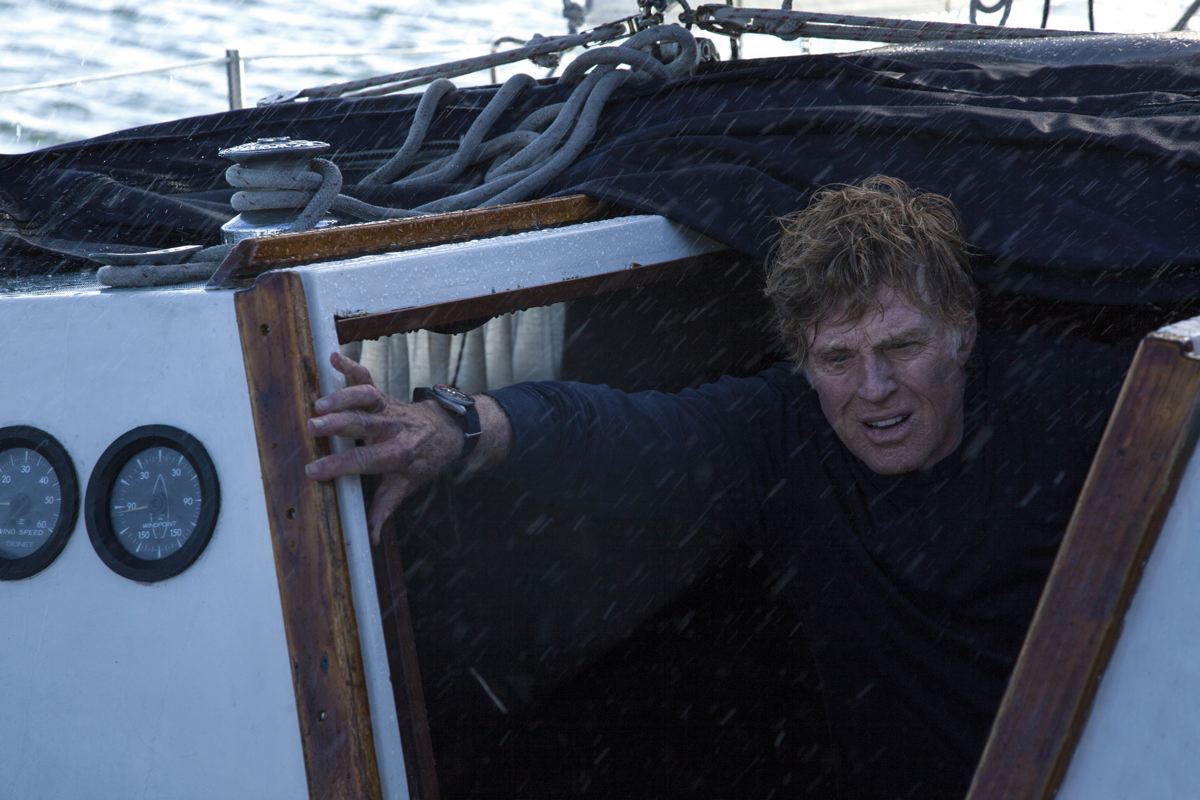CANNES, FRANCE — J.C. Chandor’s first initials don’t stand for “James Cameron,” but he makes a bid to be considered among Hollywood’s top spectacle craftsmen with “All Is Lost,” an eccentric but compelling shipwreck thriller that debuted today out of competition at Cannes.
In just about every respect, “All Is Lost” is an unexpected film, consisting of nothing more than one man, his boat, and thousands of miles of open sea. Chandor’s first feature, the financial-crisis drama “Margin Call,” was virtually this movie’s antithesis. Set largely in office buildings, it centered on a large ensemble of banking gurus who scrambled to save themselves during the arrival of the crisis they helped cause.
But both films are survival stories — and genre-wise, both can be classified as disaster movies. Furthermore, “All Is Lost” is the rare effects extravaganza that doubles an intimate drama. In the kind of acting exercise more readily seen in the days of silent film, Robert Redford plays the film’s protagonist, known in the credits as “Our Man.” He has no back story, and — apart from an opening voiceover — barely any dialogue. All we know is that he’s the lone inhabitant of a small sailing vessel 1,700 nautical miles off the Sumatra Straits.
“All Is Lost” fascinates as a procedural. With a large hole in the side of his boat, Redford does what he can to prevent it from sinking, contending with a fritzy radio, stormy weather, dwindling rations, and the knowledge that he’ll eventually have to consign himself to a life raft.
At 76, Redford is hardly the most likely choice to play the role, physically or in terms of type, but his presence imbues the movie with a metaphorical freight. (As the patron saint of indie film, after all, he’s always “one man against the elements.”) More subtly, the fact that he doesn’t look equipped to survive in these circumstances only adds suspense to the tale. As difficult as it is to think of Robert Redford as Everyman, his chances of getting out of this alive seem no greater than anyone else’s would.
Prior to the festival, “All Is Lost” had already developed a reputation as “Life of Pi” without the tiger. You could also think of it as “Cast Away” without the island, the volleyball, or anything else that might render this survival story more palatable than it should be. The movie trusts viewers to be engrossed by the details of rudimentary navigation or such tidbits as how to evaporate salt out of seawater. The existential drama is also potent. How long would you last before you decided hopelessness was easier?
With its gorgeous underwater camera work, “All Is Lost” occasionally feels like a high-tech demo reel. (The score by Alex Ebert — no relation to Roger that I know of — is the film’s main concession to commercial interests.) Although there’s a sense of fluidity to the editing, the footage was actually filmed at a mix of locations that included shooting off of Baja California and the Bahamas as well as in studio. In some ways, “All Is Lost” plays like a mass-audience counterpart to Lucien Castaing-Taylor and Véréna Paravel’s great fishing-trawler doc “Leviathan” (shown at last year’s festivals and opening soon). Both films look to the ocean to expand conventional notions of what cinema can do.












